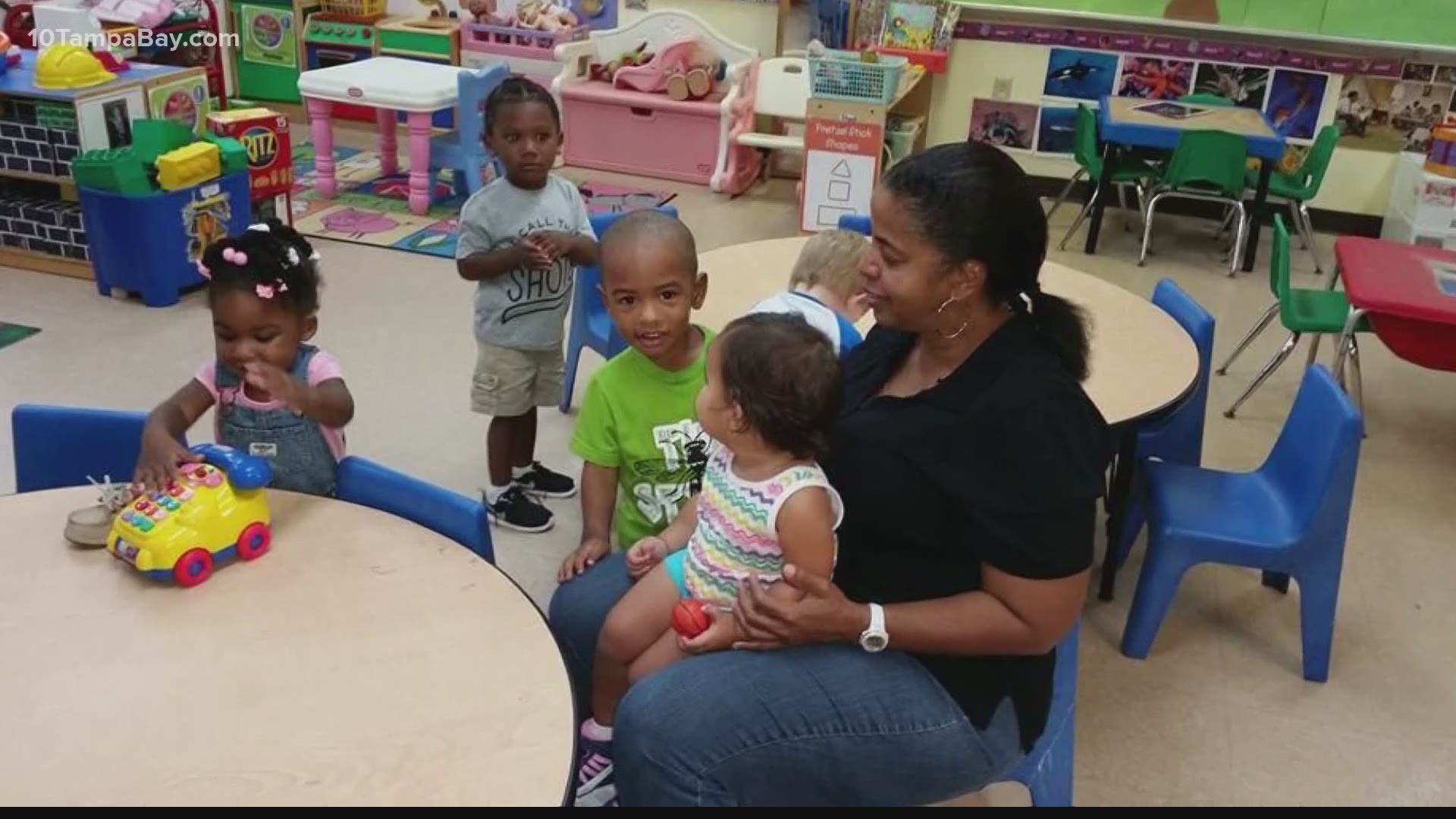TAMPA, Fla. — The long-term effects of the coronavirus pandemic have yet to be discovered both from a health and economic standpoint.
Researchers and experts are looking at data to try and figure out what our world will look like once the COVID dust settles.
One industry trying to stay afloat is childcare.
According to the Center for American Progress, roughly 50 percent of daycare centers will close for good, unable to withstand the loss of profit caused by the coronavirus pandemic.
That could leave some 4.5 million young children in the U.S. without a place to go when their parents need to report to work.
Deborah DeVane is the executive director of Forest Hills Presbyterian Learning Center in Tampa. She's been working there for 30 years; but if they don't make up some of the lost money by the end of the year, she thinks they might have to close their doors for good.
The center used to operate at 100 percent capacity, and they budgeted accordingly. Since the pandemic hit, they've only had about 30 percent of children return – causing them to cut staff hours in half and raise the rates for parents.
"For the most part, everyone here is working part-time, whereas at the beginning of the year, they were full time, now they’re working part-time. We’re all working together as a team. We all want to stay here," explained Marie Garland, the assistant director at Forest Hills Presbyterian Learning Center.
Data and analysis compiled by the Center for American Progress found Florida could lose about 56 percent of childcare slots, totaling about 419,633 children.
RELATED: Here's what happens if a student or teacher tests positive for COVID-19 at a Sarasota County School
"Can you imagine child care prices at that time, if half close down, the price other places would charge, simply to make up the difference of having that demand," noted Garland who said up until the pandemic, they almost always had a waiting list for all ages. Now there's only a wait-list for the 1-year-old room.
The predicament is complicated because now, they only accept children based on whether they need to hire an additional staff member.
Garland explained, "How many kids would we need to make that teacher worth it?"
The demand for childcare was already high across the country. Before COVID-19, for every one childcare slot, 1.82 Florida children needed care. Now, estimations predict for every one slot, 4.15 kids will need childcare.
DeVane said she did receive a Paycheck Protection Program loan from the federal government in March, and that enabled her to pay her employees for the eight weeks they were closed; but that money didn't help cover their overhead costs.
"There needs to be grants, help for some of these child care centers, to keep these teachers, we have great teachers," said Garland.
RELATED: Raising 'bubble babies': COVID-19 protocols are delaying kids from getting common colds, doctor says
What other people are reading right now:
- Hurricane season peaks this week, 2 tropical cyclones on the map
- Man struck by lightning near Davis Islands
- Hey, what about that second stimulus check? It’s looking less likely as lawmakers return to work
- Detectives: Man dies after breaking free from police, jumping in water while handcuffed
- After jogger detained for fitting burglar description, Florida sheriff offers him a job
►Breaking news and weather alerts: Get the free 10 Tampa Bay app
►Stay In the Know! Sign up now for the Brightside Blend Newsletter

